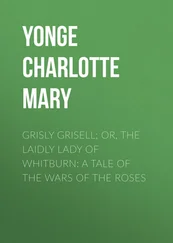John Edgar - The Wars of the Roses
Здесь есть возможность читать онлайн «John Edgar - The Wars of the Roses» — ознакомительный отрывок электронной книги совершенно бесплатно, а после прочтения отрывка купить полную версию. В некоторых случаях можно слушать аудио, скачать через торрент в формате fb2 и присутствует краткое содержание. Жанр: foreign_antique, foreign_prose, на английском языке. Описание произведения, (предисловие) а так же отзывы посетителей доступны на портале библиотеки ЛибКат.
- Название:The Wars of the Roses
- Автор:
- Жанр:
- Год:неизвестен
- ISBN:нет данных
- Рейтинг книги:3 / 5. Голосов: 1
-
Избранное:Добавить в избранное
- Отзывы:
-
Ваша оценка:
- 60
- 1
- 2
- 3
- 4
- 5
The Wars of the Roses: краткое содержание, описание и аннотация
Предлагаем к чтению аннотацию, описание, краткое содержание или предисловие (зависит от того, что написал сам автор книги «The Wars of the Roses»). Если вы не нашли необходимую информацию о книге — напишите в комментариях, мы постараемся отыскать её.
The Wars of the Roses — читать онлайн ознакомительный отрывок
Ниже представлен текст книги, разбитый по страницам. Система сохранения места последней прочитанной страницы, позволяет с удобством читать онлайн бесплатно книгу «The Wars of the Roses», без необходимости каждый раз заново искать на чём Вы остановились. Поставьте закладку, и сможете в любой момент перейти на страницу, на которой закончили чтение.
Интервал:
Закладка:
John G. Edgar
The Wars of the Roses / or, Stories of the Struggle of York and Lancaster
My object in writing this book for boys is to furnish them with a narrative of the struggle between York and Lancaster – a struggle which extended over thirty years, deluged England with blood, cost a hundred thousand lives, emasculated the old nobility, and utterly destroyed the house of Plantagenet.
It is generally admitted that no period in England's history is richer in romantic incident than the three decades occupied by the Wars of the Roses; but the contest is frequently described as having been without interest in a political point of view. This idea seems erroneous. That struggle of thirty years was no mere strife of chiefs, ambitious of supremacy and unscrupulous as to means. Indeed, the circumstances of the country were such that no hand would have been lifted against sovereigns – whether reigning by Parliamentary or hereditary right – who showed a due respect to ancient rights and liberties. But the tyranny exercised, first by the ministers of the sixth Henry, and afterward by those of the fourth Edward – one influenced by Margaret of Anjou, the other by the Duchess of Bedford, both "foreign women" – was such as could not be borne by Englishmen without a struggle; and evidence exists that Richard Neville, in arming the people against these kings, did so to prevent the establishment of that despotism which John Hampden and Oliver Cromwell afterward fought to destroy.
With such impressions as to the origin of the war which, during the fifteenth century, agitated England and perplexed Continental rulers, I have, in the following pages, traced the course of events from the plucking of the roses in the Temple Gardens to the destruction of Richard the Third, and the coronation of Henry Tudor, on Bosworth Field. And I venture to hope that a book written to attract English boys of this generation to a remarkable epoch in the mediæval history of their country will be received with favor, and read with interest, by those for whose perusal it is more particularly intended.
J. G. E.INTRODUCTION
The Plantagenets
About the middle of the ninth century a warrior named Tertullus, having rendered signal services to the King of France, married Petronella, the king's cousin, and had a son who flourished as Count of Anjou. The descendants of Tertullus and Petronella rose rapidly, and exercised much influence on French affairs. At length, in the twelfth century, Geoffrey, Count of Anjou, surnamed Plantagenet, from wearing a sprig of flowering broom instead of a feather, espoused Maude, daughter of Henry Beauclerc, King of England; and Henry Plantagenet, their son, succeeded, on the death of Stephen, to the English throne.
Having married Eleanor, heiress of Aquitaine, and extended his continental empire from the Channel to the Pyrenees, Henry ranked as the most potent of European princes. But, though enabled to render great services to England, he was not an Englishman; and, indeed, it was not till the death of John, at Swinehead, that the English had a king who could be regarded as one of themselves. That king was Henry the Third, born and educated in England, and sympathizing with the traditions of the people over whom he reigned.
Unfortunately for Henry, he was surrounded by Continental kinsmen, whose conduct caused such discontent that clergy, barons, citizens, and people raised the cry of England for the English; and Simon de Montfort, though foreign himself, undertook to head a movement against foreigners. A barons' war was the consequence. Henry, defeated at Lewes, became a prisoner in the hands of the oligarchy; and there was some prospect of the crown passing from the house of Plantagenet to that of Montfort.
At this crisis, however, Edward, eldest son of the king, escaped from captivity, destroyed the oligarchy in the battle of Evesham, and entered upon his great and glorious career. Space would fail us to expatiate on the services which, when elevated to the throne as Edward the First, that mighty prince rendered to England. Suffice it to say that he gave peace, prosperity, and freedom to the people, formed hostile races into one great nation, and rendered his memory immortal by the laws which he instituted. 1 1 "Edward the First hath justly been styled the English Justinian. For, in his time, the law did receive so sudden a perfection, that Sir Matthew Hale does not scruple to affirm that more was done in the first thirteen years of his reign to settle and establish the distributive justice of the kingdom than in all the ages since that time put together… It was from this period that the liberty of England began to rear its head." — Blackstone's Commentaries.
For the country which the first Edward rendered prosperous and free, the third Edward and his heroic son won glory in those wars which made Englishmen, for a time, masters of France. Unhappily, the Black Prince died before his father; and his only son, who succeeded when a boy as Richard the Second, departed from right principles of government. This excited serious discontent, and led the English people to that violation of "the lineal succession of their monarchs" which caused the Wars of the Roses.
Besides the Black Prince, the conqueror of Cressy had by his queen, Philippa – the patroness of Froissart – several sons, among whom were Lionel, Duke of Clarence; John of Gaunt, Duke of Lancaster; and Edmund of Langley, Duke of York. 2 2 "Lionel of Clarence married Elizabeth, daughter of William de Burgh, Earl of Ulster, and had a daughter, Philippa, wife of Edmund Mortimer, Earl of March. John of Gaunt was thrice married. His first wife was Blanche, heiress of Lancaster, by whom he had a son, Henry the Fourth, and two daughters – Philippa, married to the King of Portugal, and Elizabeth, to John Holland, Duke of Exeter. His second wife was Constance, eldest daughter of Peter the Cruel, King of Castile, by whom he had a daughter, Katherine, married to Henry the Third, King of Castile. His third wife was Katherine Swynford, by whom he had two sons – Henry Beaufort, Cardinal of St. Eusebius and Bishop of Winchester, and John Beaufort, Earl of Somerset, ancestor of the dukes who fought in the Wars of the Roses, and of Margaret Beaufort, Countess of Richmond, mother of Henry the Seventh. But both the sons of Katherine Swynford were born before wedlock. Edmund of Langley espoused Isabel, second daughter of Peter the Cruel, and had two sons – Edward, Duke of York, who fell at Agincourt, and Richard, Earl of Cambridge, who married Anne Mortimer, daughter of the Earl of March, and left a son, Richard, Duke of York." – See Sandford's Genealogical History .
Lionel died early; but John of Gaunt survived his father and eldest brother, and was suspected of having an eye to the crown which his young nephew wore. No usurpation, however, was attempted. But when John was in the grave, his son, Henry of Bolingbroke, returning from an irksome exile, deposed Richard, and sent him prisoner to Pontefract Castle, where he is understood to have been murdered.
On the death of Richard, who was childless, Henry the Fourth, as son of John of Gaunt, would have had hereditary right on his side, but that Lionel of Clarence had left a daughter, Philippa, wife of Mortimer, Earl of March, and ancestress of three successive earls. Of these, Edmund, the last earl, was a boy when Henry of Bolingbroke usurped the throne; and his sister, Anne Mortimer, was wife of Richard Plantagenet, Earl of Cambridge, second son of Edmund of Langley, Duke of York. "This was that princely branch," says Sandford, "by the ingrafting of which into the stock of York, that tree brought forth not only White Roses, but crowns and sceptres also."
Читать дальшеИнтервал:
Закладка:
Похожие книги на «The Wars of the Roses»
Представляем Вашему вниманию похожие книги на «The Wars of the Roses» списком для выбора. Мы отобрали схожую по названию и смыслу литературу в надежде предоставить читателям больше вариантов отыскать новые, интересные, ещё непрочитанные произведения.
Обсуждение, отзывы о книге «The Wars of the Roses» и просто собственные мнения читателей. Оставьте ваши комментарии, напишите, что Вы думаете о произведении, его смысле или главных героях. Укажите что конкретно понравилось, а что нет, и почему Вы так считаете.












